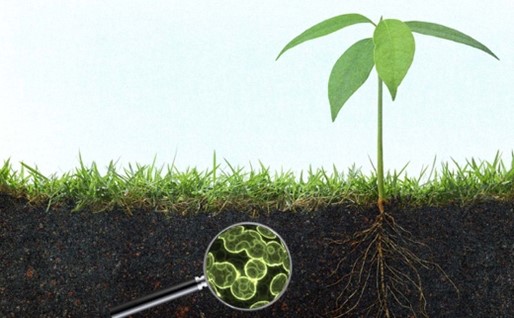The Scoop on Garden Soil
- 2021-03-04
- By mkirk
- Posted in The Garden Buzz
By Judy Kunz, Colorado Master Gardener
There are more microorganisms in a handful of healthy soil than there are people on the earth. Our very lives depend on its vitality. Soil not only supports the plants that release oxygen and provide us with food, but it also cleans the air and stores carbon. For a healthy, productive garden with flowers, vegetables and fruit that look like they’re from a magazine photograph, start with what’s under your feet. Doing the work now will help achieve the results you are looking for and give plants a good start.
The goal is an ideal soil teeming with microorganisms and containing an optimal mixture of oxygen, water, minerals and organic matter. Most soils in our area contain much of what plants need but a baseline soil test can be specific in indicating how to amend the soil before planting a flower or vegetable garden and even trees, shrubs or turf.
Begin with a comprehensive soil test to provide a baseline reference. A soil test will give you extensive information on the growing conditions of your garden or yard, along with recommendations for appropriate fertilization and/or amendments, if needed. Unless extensive changes have been made in the form of amendments such as manures that contain high salt content, biosolids or large quantities of compost, a soil test need only be completed every four to eight years.
Front range soils can be high in alkaline clay and many times contain less root friendly oxygen because the fine particles don’t have enough pore space between them. Some areas tend to have more sandy soils, which contain enough pore space, but often lack organic matter. While ideal organic matter content is 5-7%, most native soils contain less than 3%. Spading in 1” to 2” of compost yearly will gradually build organic matter over time, improving the tilth which creates optimal conditions for microorganisms to flourish.
Don’t forget to top off new plantings with mulch, an important component in a healthy garden. Mulch pulls the look of the garden together, protects against soil erosion, conserves much needed moisture, minimizes temperature fluctuations, protects against foot compaction and minimizes weed germination.
Horticulture Resources
- Garden Buzz Archives
- CSU Extension Resources
- Colorado Master Gardener Program
- Foothills to Plains Native Plant Master Program
- Native Bee Watch Community Science Program
- The Co-Hort Blog
- PlantTalk Colorado
- Soil Testing
- Plant Select
- Emerald Ash Borer
- Japanese Beetle
- Colorado State Forest Service
- Ask an Expert




